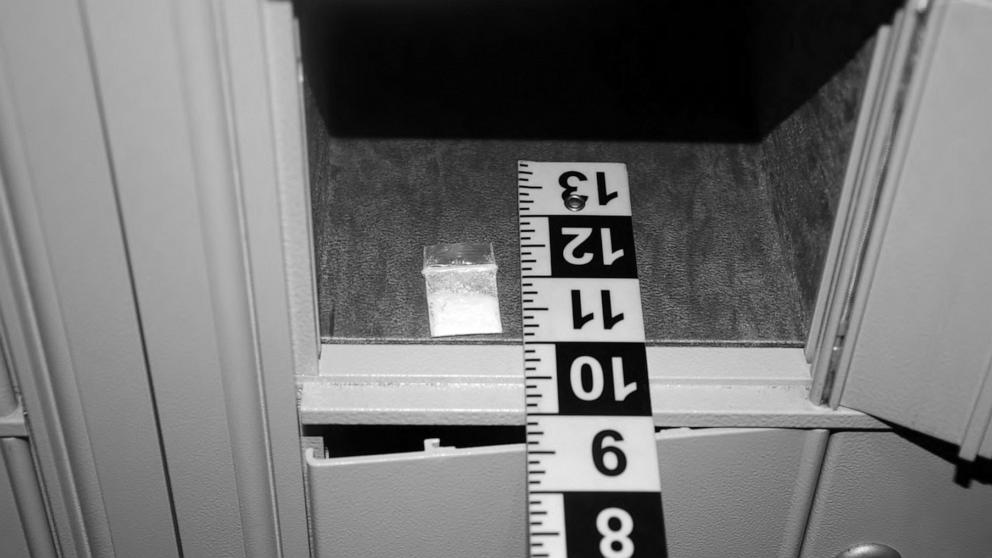


The bag of cocaine found inside the White House complex was found inside a cubby near an entrance to the West Wing commonly used to give tours and where visitors are instructed to place phones and other belongings, photos obtained by ABC News show.
The photos show a small bag of cocaine inside of cubby #50, the photos show.
The Secret Service closed its investigation on July 12 after it said it could not identify a suspect.
The tours are by invitation only and normally led by a White House staffer. The Secret Service said hundreds of people had access to the area and that no security camera footage showed what happened. Congressional Republicans raised questions about that explanation, saying it raised security concerns.
MORE: Secret Service ends investigation into cocaine found in White House without identifying a suspectWhen the cocaine was found on July 2, the White House was briefly shut down, President Joe Biden and Vice President Kamala Harris were outside of Washington at the time the cocaine was found.
Internal Secret Service emails also obtained in the FOIA show the FBI immediately took control of at the time was "white powder" for further testing at the FBI lab in Quanitco, Virginia.
"There was no surveillance video footage found that provided investigative leads or any other means for investigators to identify who may have deposited the found substance in this area," the agency said in a lengthy statement in July. "Without physical evidence, the investigation will not be able to single out a person of interest from the hundreds of individuals who passed through the vestibule where the cocaine was discovered. At this time, the Secret Service's investigation is closed due to a lack of physical evidence."
The Secret Service said the packaging was "subjected to advanced fingerprint and DNA analysis," by the FBI crime lab.
MORE: Cocaine found in cubby where White House visitors place cell phones, source says"The investigation included a methodical review of security systems and protocols," the agency statement said. "This review included a backwards examination that spanned several days prior to the discovery of the substance and developed an index of several hundred individuals who may have accessed the area where the substance was found. The focal point of these actions developed a pool of known persons for comparison of forensic evidence gleaned from the FBI's analysis of the substance's packaging.
"On July 12, the Secret Service received the FBI's laboratory results, which did not develop latent fingerprints and insufficient DNA was present for investigative comparisons," the statement said.